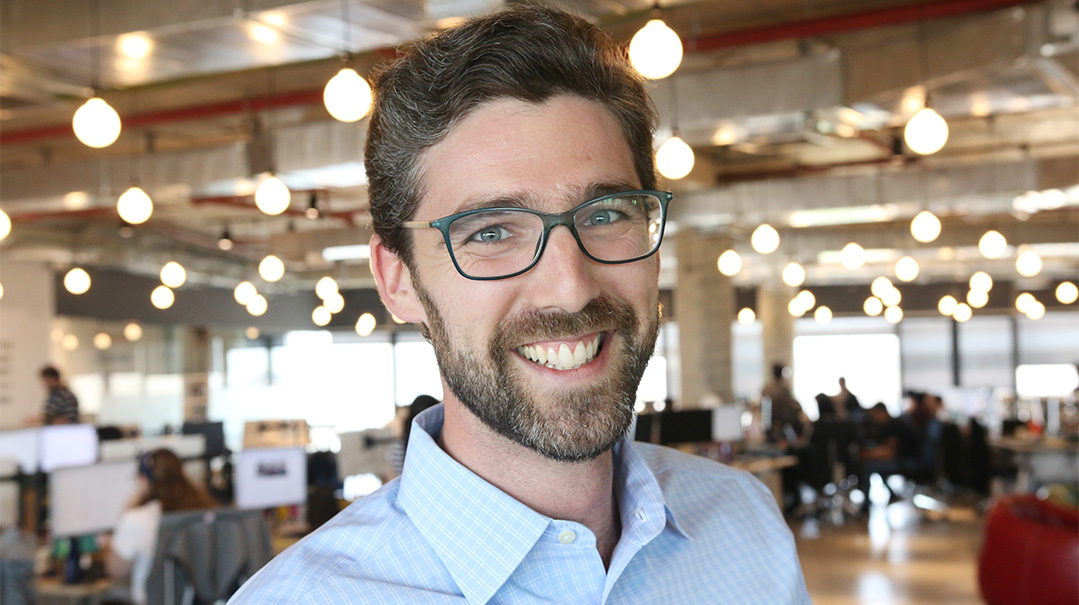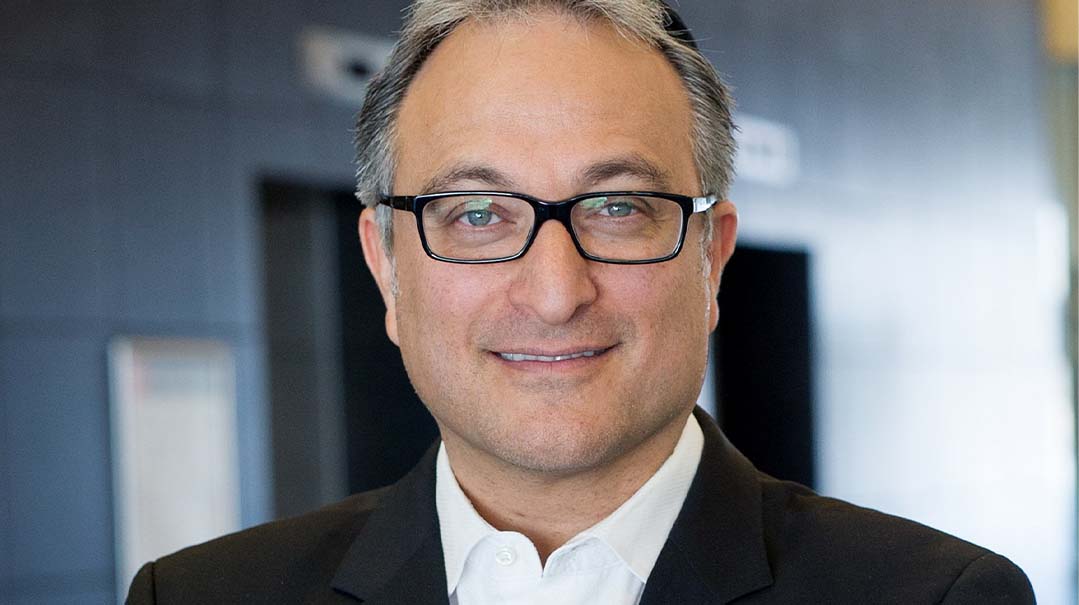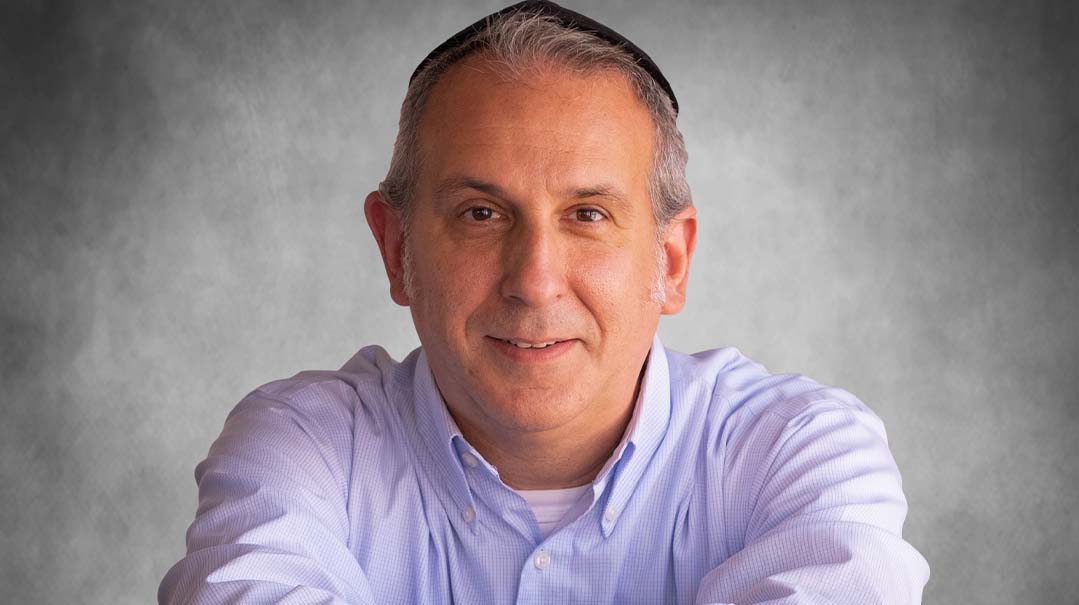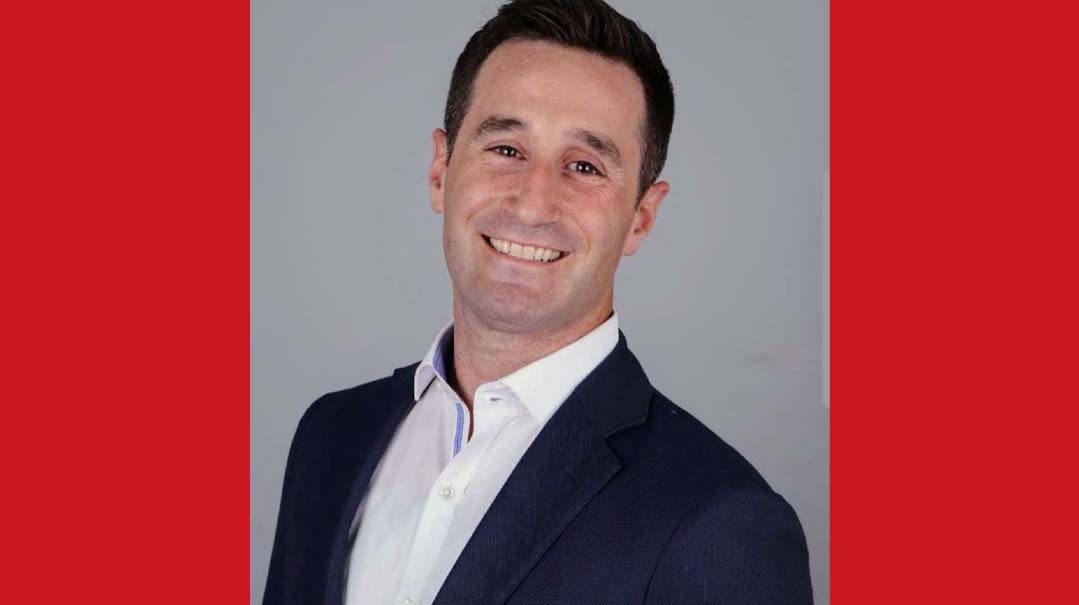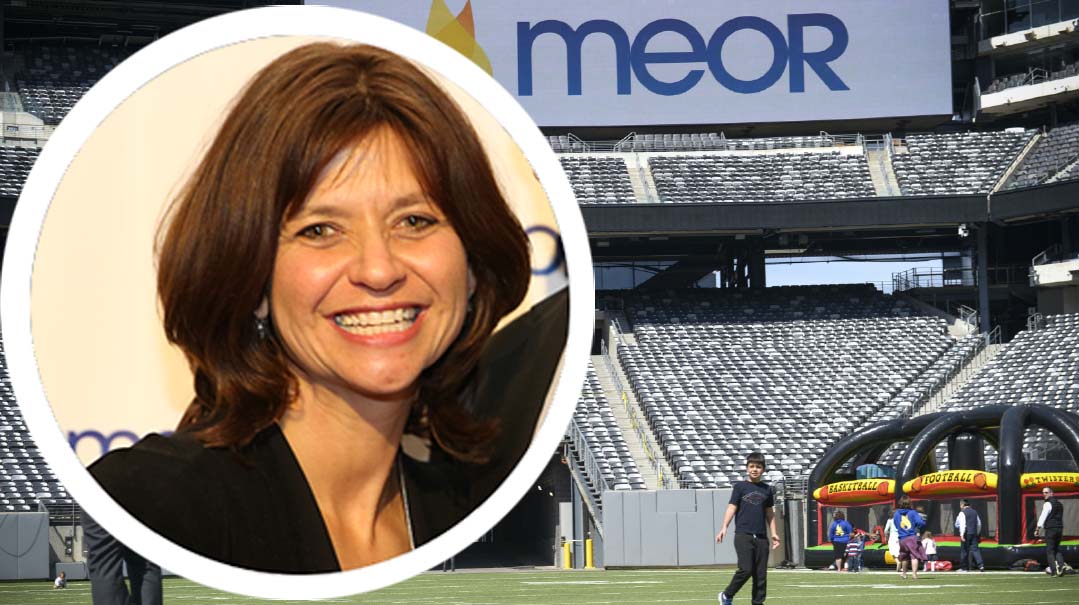Work/Life Solutions with Yaakov Zar

“Most questions can be answered through the guidance of Torah — we just need to know where to look”
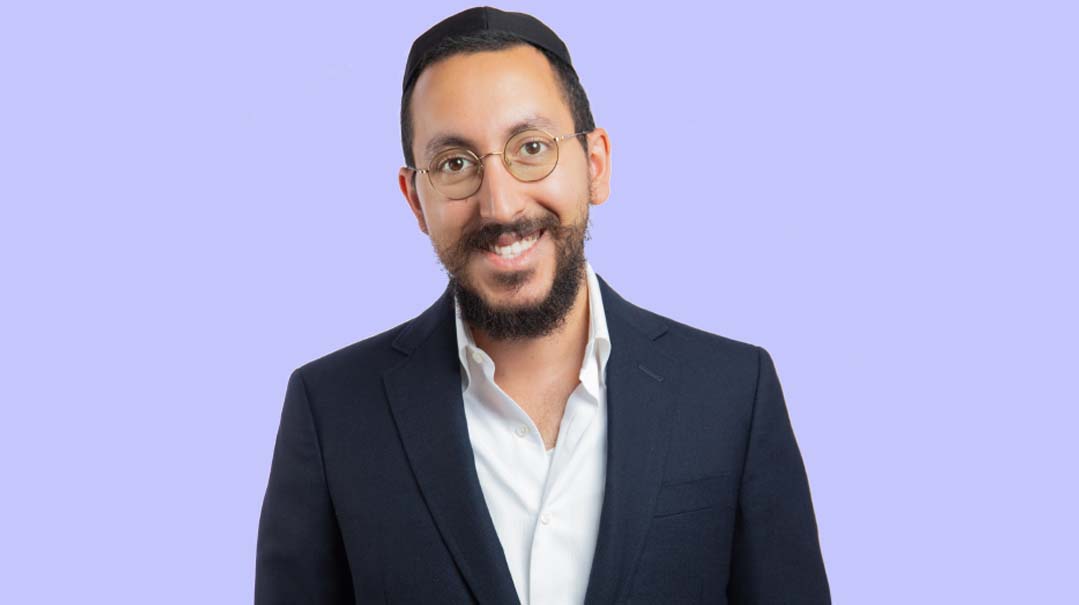
Who: Yaakov Zar, founder and CEO of Lev, one of the nation’s fastest-growing commercial mortgage brokerages.
What: New York–based Lev helps commercial real estate owners and investors get the best financing for their properties by supercharging the industry’s leading capital markets advisors with machine learning and artificial intelligence tools. They automate workflows online and gather hundreds of millions of data points into machine-learning software to ensure financing accuracy. They just raised $30 million from top investors, giving the company a $130 million valuation.
Prior to starting Lev, Yaakov was a co-founder and chief of strategy at Dispatch, a workforce management platform for enterprise home service businesses, where he led product and sales to large accounts nationwide. In 2018, Vista Equity Partners acquired Dispatch.
Where: Yaakov grew up in Great Neck, New York, graduated from Boston University in 2012 with a focus in entrepreneurship, and lives with his wife and daughter in New York’s Lower East Side.
Why: There’s always exciting news in the venture capital world, with all kinds of start-ups raising tons of money to bring their dreams to reality. But when I read the news about Lev’s newest investment, my interest was especially piqued. It wasn’t just because they raised $30 million from top investors, or that they’re valued at a whopping $130 million just two years from inception; rather, it was the fact that the founder and CEO was a frum-looking guy with a beard... I had to learn more! I then reached out to a friend who had invested in Lev, and when he had the greatest things to say about Yaakov, I knew this would be a great Mishpacha interview!
It turns out that Yaakov and his wife Dassi serve as shluchim at Chabad House Bowery, and they’re actively involved with college campus kiruv at NYU and nearby universities. (How do they have time for that?) And as I learned more about him and his story, I was absolutely blown away by his emunah, humility, and positive outlook on the world. (I was actually brought to tears during the interview!) Meet Yaakov Zar.
What opportunities or personalities played a role in your career?
There are a few important personalities who play or have played significant roles in my career.
My business partner, Avi, has shown me what it takes to be a focused, dedicated, and hardworking businessperson while maintaining a truly Torah lifestyle. He taught me the importance of a stellar reputation and always doing the right thing, which has paid infinite dividends so far in my career.
Chassidus in general, the Lubavitcher Rebbe specifically, and his many shluchim, have served as a guiding light in everything I do. Most questions in day-to-day life can be answered through the guidance of Torah — we just need to know where to look. When I am in doubt about something relating to business strategy, management, or many other topics, I always look to chassidus to draw parallels from the unique and ultimate source of truth into everyday actions and decisions. I can’t say yet that I am operating in a way that is completely aligned with the Rebbe’s guidance, but I try to get closer each and every day. Also, the dedication, grit, focus, and humility of shluchim worldwide, and specifically Rabbi Shmuel Posner in Boston, who is my mashpia, provides an unparalleled inspiration to act that way in everything that I do, business-related or otherwise.
Of course, my parents and family are the core source of my education and so much that I do in my life and work. My parents taught me about hard work, professionalism, focus and humility. They dedicated their lives to making my siblings and my life as special as possible, and I am inspired by them to continue doing so to my own children, im yirtzeh Hashem. My wife and daughter are and have been so patient and supportive of my work and the difficulty of it, and their love and strength gives me the foundation and flexibility to wake up everyday energized and ready to go. This is a huge understatement, but I’ll leave it at that — as they say, “Hameivin yavin.”
What do you do to relax, recharge, or simply have fun? How do you make time for that, and how often?
Baruch Hashem, after being married for a long time, we have a daughter who just turned one. She is the source of all happiness for my wife and me, and there is no fun these days without her.
As I mentioned above, I think that it is important to keep things in perspective in our day-to-day lives. Through working individually on the point described above with regards to our responsibility to create the garments for Hashem’s blessings, we should come to realize that the extra work we do doesn’t provide additional blessing. It’s comparable to wearing clothes: If you go shopping, pants that are size medium are the same price as extra large pants. Does it make sense to buy XL pants if you’re size medium? You get more clothing for the same price, so isn’t that better?! Obviously not. You’ll trip and fall. The Tzemach Tzedek uses a similar analogy for the work that we do. We need to do the right amount and rely on Hashem to provide his blessing.
The right amount is different for each person. Some people might have to put in more hours than others to accomplish the same thing. That’s fine. The key is making sure that the work stays separate from you and who you are, and that your highest capabilities and investment of self are put into serving Hashem. Dovid Hamelech says in Tehillim, “Yegia kapecha, ki tochal, ashrecha v’tov lach.ְ” Specifically, it is the “fruits of your hands,” which are your external capabilities. Though in today’s day and age we need to use our minds for most of our work, the blessings come from us keeping the most essential and powerful parts of our “hearts and minds” for serving Hashem and using our “hands” to draw down Hashem’s blessing.
What was your most resounding failure? What did you take away from that experience?
I pretty much fail at several things everyday. Maybe less so on Shabbos!
I think it’s important to try to do things and to work hard at them, but also maintain the knowledge that we can’t do everything, and we definitely can’t be great at everything.
It is hard to live life without failing, and our perspective of it is what matters. If we are constantly learning, failure doesn’t hurt very much, and it is incredible to see how much we can learn if we try. Very often, I encourage those I work with to look back a year, six months, or even a month, and think about how different they were as a person. We should all be able to look back a month, or ideally even to yesterday, and think, “Wow, what was I doing? I knew so little and I’ve learned so much since then.” That is a special way to live. That is teshuvah at the highest level.
What do you do to relax, recharge, or simply have fun? How do you make time for that, and how often?
I would invest more time and energy in the needs of our communities.
My wife and I help run Chabad House Bowery with the Korn family. We serve students at NYU and nearby universities, as well as an incredible community of young professionals living in downtown New York City. The most amazing thing is being part of a community of engaged and young neshamos, each of whom are unbelievably unique and special, and who are so genuine in their desire to be better and do better. It serves as an inspiration to us every single day. Though Covid significantly affected the number of people we’ve engaged with for the past year and a half, we are excited that the community has bounced back and is now even bigger than it was before, and I believe there’s a lot we can do to make it even stronger still. Any “extra” time or resources we have go to helping make that happen.
In addition, I am passionate about helping couples have children. Having spent a long time waiting for Hashem to provide us with this blessing, my wife and I have learned a lot about what goes into the fertility process, as well as the halachic guidelines around many of these treatments. As science enables more people to have more options in building and growing their families, it is important to provide easy and affordable opportunities for those who need them, as well as providing the knowledge and education about what is needed to handle these processes in accordance with Torah law.
Can you share a time when you had to navigate the tension between your deepest values and the business world?
When I first graduated from Boston University, I was working on a business I had started while I was in school. I didn’t know much about what I was doing, but I wanted to raise some money from investors and had a ton of meetings. It didn’t work out, and I couldn’t raise much money. It was probably due to the fact that I didn’t know what I was doing!
At the time, I had recently gotten much deeper into my spiritual journey, and decided that it was important to me to have a beard. The problem was, my genetics didn’t really keep up! I stopped shaving, but I just ended up with a very awkward amount of facial hair.
Being that my business didn’t work out, I started to look for a job. I was very surprised, because I thought of myself as a pretty skilled person, but I couldn’t get even the most entry-level jobs. It was a very humbling and painful experience. My parents were convinced that my “messy” look was a big factor in that, and I felt very stuck, trapped, and confused.
Shortly after, I met with someone about a business he was starting to think about. We had a lot of conversations that were going well, but before a meeting he had arranged with an investor, he said, “Well, you’ve got to shave before the meeting. And tuck in your tzitzit!” I was shocked and confused. I had no intention of doing either of those, and I had proven my value through the work we were doing together. I told him that I wouldn’t do that, and his response was simply, “That’s fine, but you won’t be coming to many meetings, then.”
It was a confusing and difficult time, but it was clearly Hashem working His magic. If I had been successful in getting a job right after school, I would not have had the incredible opportunities to start Dispatch, and later start Lev. We see such a small part of life, and we sometimes forget that Hashem is running every detail. I also quickly continued to prove my value to my colleague, and not only was I invited to many more meetings, but I served as a primary interface with clients and external partners. There is no reason for spirituality and business to conflict — we just need to maintain an awareness of the Master of the World when we are engaging in work.
Since having our daughter, I’ve learned so much about our relationship with Hashem. For example, when my daughter started eating food, she would hold on to the spoon and get frustrated when the food on the spoon was finished. When we took the spoon to put another scoop of food on it, she’d yell as if we were taking her food away! She didn’t yet have the awareness that the spoon is just the vessel to bring the food to her mouth — it is not the source of food! She doesn’t see that taking away the spoon is necessary to provide more food. We need to maintain the trust in Hashem that just as He’s always filled our spoon and given it back, even after taking it away sometimes, He will continue to do so. The frustration just delays the process and pains us without benefit.
We should all be able to look back a month, or ideally even to yesterday, and think, “Wow, what was I doing? I knew so little and I’ve learned so much since then.”
If you were advising a young man or woman hoping to launch a career as an entrepreneur, which “do’s” and “don’ts” would you share?
In my opinion, the most important thing in starting a business is to understand what you are working on and why. Though this seems obvious, it can sometimes be confusing, and I think many people fail to truly dive deep into why they are working on something.
Starting a business means you are going to dedicate the vast majority of your waking hours each day to this effort. That’s a lot of work. There’s nothing else that we decide and dedicate ourselves to at that scale, other than our marriage.
I think that the understanding of “why” you’re working on something also includes knowing your purpose beyond the goal of the business. With this, I mean that as important as the specific mission you are working on is and should be to you, it is still nothing in relation to your actual purpose and being as a person. You have the opportunity to do mitzvot and influence others positively. Each of us has a unique capability to create tremendous physical and — more importantly — spiritual value in the world, and we need to keep our awareness of that throughout everything we do. Hashem created us and bestowed upon us a G-dly soul and put a cheilek Eloka mimaal mamash within us, giving us the capability to do unbelievable things. It’s our responsibility to uphold our end, and we need to work hard everyday to get there.
One of the most unique and powerful aspects of starting a business is that your identity as the founder or owner of the business becomes one with the company itself. This factor can empower us to do incredible things, or, G-d forbid, it can be extremely painful and dangerous for mental health. As you are working on your business, interacting with clients and hiring, it is important to keep in mind that you are building a brand for your company and yourself as an individual, and the reputation that your business has and will have is a reflection and extension of your own reputation.
Our spouses, children, and families become tied to that brand, so I work hard to make sure that whatever I do in the workplace is something I would be proud of having associated with my daughter. This is hard. It means maintaining a very high quality standard, working very hard, being honest, being kind (sometimes “more kind than necessary”).
We live in this physical world, where compromise is inherent to galus. We strive for perfection and are pained by the difficulty in accomplishing it, but it’s an avodah and we need to engage in it.
At the same time, we know that the blessings for parnassah come from Hashem. We know that each Rosh Hashanah, it’s determined how much we will make that year. Our responsibility is to create the levushim to enable the brachot to come down into this world. We want to simply provide the covering so that Hashem doesn’t have to create miracles for us to receive our incredible blessings.
There’s a story of the Baal Shem Tov: He walked up to a house and knocked on the window. Before anyone acknowledged his arrival, he simply said to the closed window that he needed money for a certain reason, then walked away. Shortly thereafter, someone ran out of the house and asked the Baal Shem Tov how much he needed and gave it to him.
An observer later asked the Baal Shem Tov, “Why did you walk away after knocking and not wait for the person to come to the door? And if you knew that Hashem would provide you with this blessing, why even knock at all?”
The Baal Shem Tov’s response was that Hashem tells us “U’veirachecha Hashem Elokecha b’chol asher taaseh — And Hashem blesses you in all that you do.”
It is specifically due to the “taaseh,” the work that we do that provides the blessing. This is the most important thing for us to realize every single day, but it gets harder and harder as your business grows. People start to think that a certain decision was a great decision, and this call they made was the perfect move, and some strategy they came up with was genius. It’s not. Hashem makes things happen. We do our part, and Hashem decides how it turns out. That is the most important thing for us to realize.
Moe Mernick runs business development at a high-growth tech company, gives a daily daf yomi shiur, and produces short, inspiring videos on each daf (available on TorahAnytime and AllDaf). He holds an MBA and semichah, wrote a book about growing through challenges (The Gift of Stuttering), and lives in Ramat Beit Shemesh with his wife and children.
(Originally featured in Mishpacha, Issue 885)
Oops! We could not locate your form.
